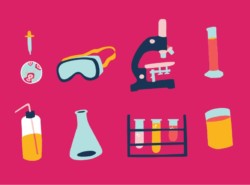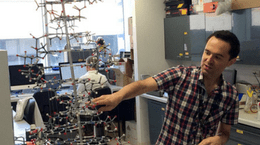
Improving genetic testing for familial cancer risk
Published: 10/10/19 12:21 AM

Andrew Deans
Approximately 10 per cent of breast cancer cases are caused by faulty genes being handed down through generations. Those with familial breast cancer genes have a higher risk of developing the disease, are likely to get it at an earlier age and have a lower rate of survival than others with breast cancer.
BRCA1 and BRCA2 are well-known genes associated with a family history of breast cancer, but they don’t tell the full story in about 50 per cent of families with a strong family history of breast cancer, the responsible gene is not known.
The advent of genetic testing for genes associated with breast cancer has contributed to prevention and early diagnosis. There is room for improvement however as most of these tests are limited to looking for BRCA1 and BRCA2 genes, leaving many families with little information about their risk.
Attention is turning to two other genes, FANCC and FANCM, which evidence suggests could also be involved in familial breast cancer.
This study aims to determine the prevalence of FANCC and FANCM by analysing a large number of Australian familial breast cancer cases, and unaffected women, to see if adding these genes to standard genetic tests would be beneficial.
For women and men who have breast cancer in the family but test negative for BRCA1 and BRCA2, knowledge of other genes associated with a high risk of breast cancer is valuable information that can help them make informed choices about potential preventative measures that could mean they never develop breast cancer.
This national collaborative study led by Dr Andrew Deans will also aim to see if mutations in FANCC and FANCM follow a mechanism similar to that of mutated BRCA1 and BRCA2 genes in being unable to properly repair damaged DNA.
This could provide a better understanding of other genes that may also be associated to breast cancer, and point to opportunities for improving treatments for these families.